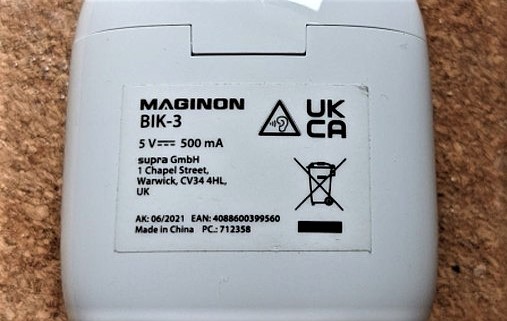UK Conformity Assessed UKCA
Contents |
[edit] Introduction
In March 2019, the Government passed legislation which came into effect on 1 January 2021 to make arrangements for the regulation of products after EU Exit. This legislation resulted in the introduction of the UKCA (UK conformity assessed) product marking system.
[edit] Harmonisation under the new approach
UKCA marking was introduced following the Brexit to replace CE marking for certain goods being placed on the market in Great Britain (England, Wales and Scotland).
UKCA marking is intended to give the UK control over its goods regulations. It also allows the UK to maintain product safety standards for most goods which previously required the CE marking (including goods covered by the EU's new approach directive as well as aerosol products that previously required reverse epsilon marking). The parameters of the new approach were developed in the early 1980s and established in the 'Council Resolution of 7 May 1985 on a New Approach to technical harmonisation and standards'. They defined the essential requirements (or common toolkit of regulatory measures) that products need to meet when they are put on the market.
[edit] Markings for construction goods
The Government has issued specific guidance for construction product regulation in the UK. This covers:
- Construction products including, but not exclusive to, cements, concrete and mortar, precast, masonry, structural metallics, insulation, roofing coverings, membranes and liquid waterproofing, wood-based panels, doors, windows, structural timber, fire stopping, sealing and production products.
- Road construction products including, but not exclusive to, surface treatments, bitumen and bituminous mixtures, bridge deck waterproofing and liquid applied waterproofing.
Construction goods lawfully marked with the CE mark and placed on the EU market before the end of the Brexit transition period are being permitted to circulate until they reach their end user, whether they are in the UK or the EU.
[edit] Specifics for Northern Ireland
Northern Ireland will continue to recognise the CE marking for goods placed on the market in Northern Ireland. Goods providers and manufacturers in Northern Ireland are required to use the UKNI marking if they use a UKCA body to test their products.
[edit] Adoption of UKCA marking postponed
On 25 August 2021, the Government announced that UKCA marking will not be mandatory for products until 1 January 2023, delaying the previous deadline by one year.
The decision came after lobbying revealed that there was insufficient availability or capacity for UKCA testing to be completed by the original deadline (December 2021). This shortage applied to many products needing third party conformity assessment, including construction products.
Uncertainty remains within the construction sector about the exact mechanism for compliance even under the revised deadline.
[edit] Related articles on Designing Buildings
- BBA becomes an Approved Body for UKCA Marking.
- CE marking in the construction industry.
- CLC publishes Conformity Marking of Construction Guide.
- Construction Products Regulation CPR.
- Deadline for CE marked products extended to 1 January 2023.
[edit] External resources
Featured articles and news
Tackle the decline in Welsh electrical apprenticeships
ECA calls on political parties 100 days to the Senedd elections.
Resident engagement as the key to successful retrofits
Retrofit is about people, not just buildings, from early starts to beyond handover.
What they are, how they work and why they are popular in many countries.
Plastic, recycling and its symbol
Student competition winning, M.C.Esher inspired Möbius strip design symbolising continuity within a finite entity.
Do you take the lead in a circular construction economy?
Help us develop and expand this wiki as a resource for academia and industry alike.
Warm Homes Plan Workforce Taskforce
Risks of undermining UK’s energy transition due to lack of electrotechnical industry representation, says ECA.
Cost Optimal Domestic Electrification CODE
Modelling retrofits only on costs that directly impact the consumer: upfront cost of equipment, energy costs and maintenance costs.
The Warm Homes Plan details released
What's new and what is not, with industry reactions.
Could AI and VR cause an increase the value of heritage?
The Orange book: 2026 Amendment 4 to BS 7671:2018
ECA welcomes IET and BSI content sign off.
How neural technologies could transform the design future
Enhancing legacy parametric engines, offering novel ways to explore solutions and generate geometry.
Key AI related terms to be aware of
With explanations from the UK government and other bodies.
From QS to further education teacher
Applying real world skills with the next generation.
A guide on how children can use LEGO to mirror real engineering processes.
Data infrastructure for next-generation materials science
Research Data Express to automate data processing and create AI-ready datasets for materials research.
Wired for the Future with ECA; powering skills and progress
ECA South Wales Business Day 2025, a day to remember.
AI for the conservation professional
A level of sophistication previously reserved for science fiction.























